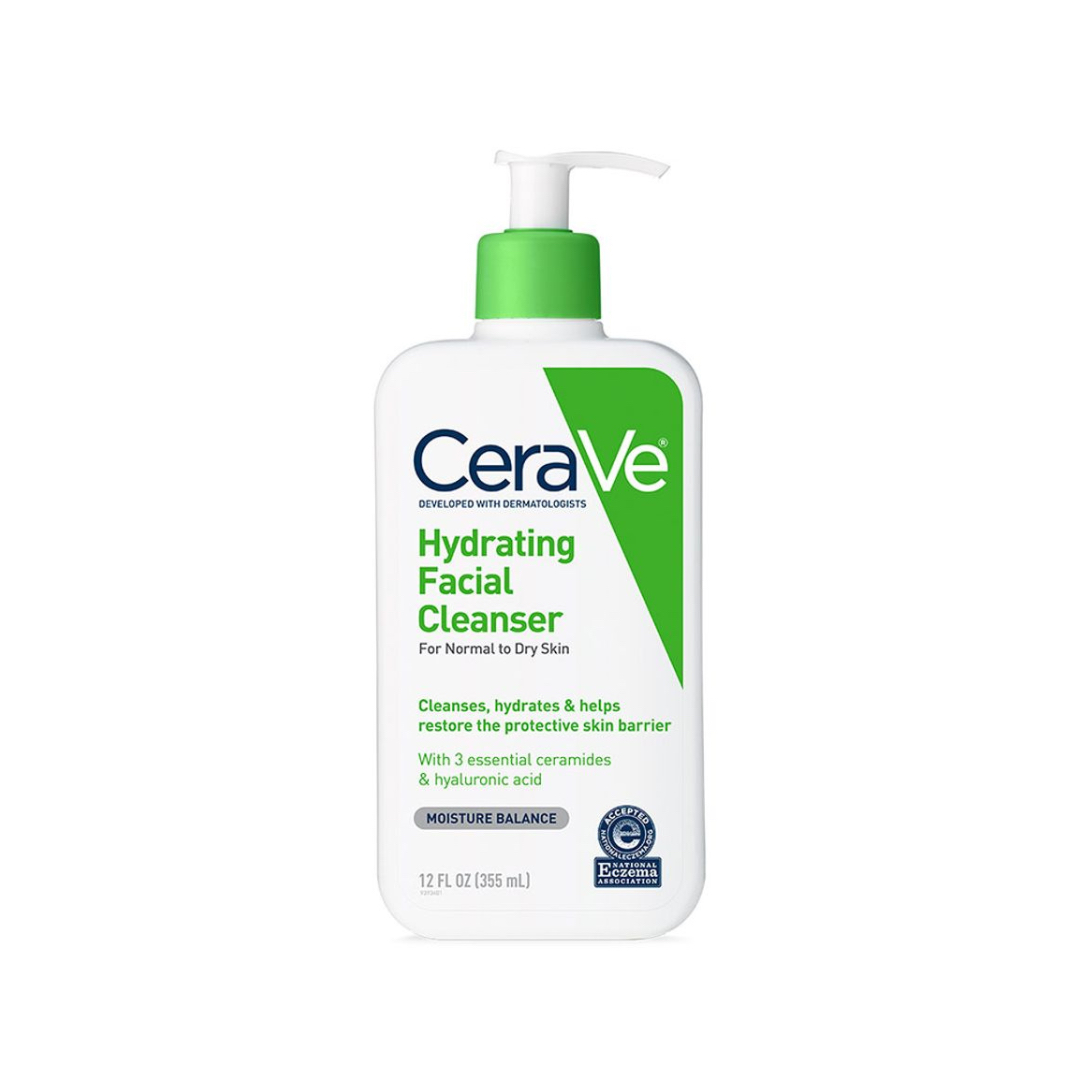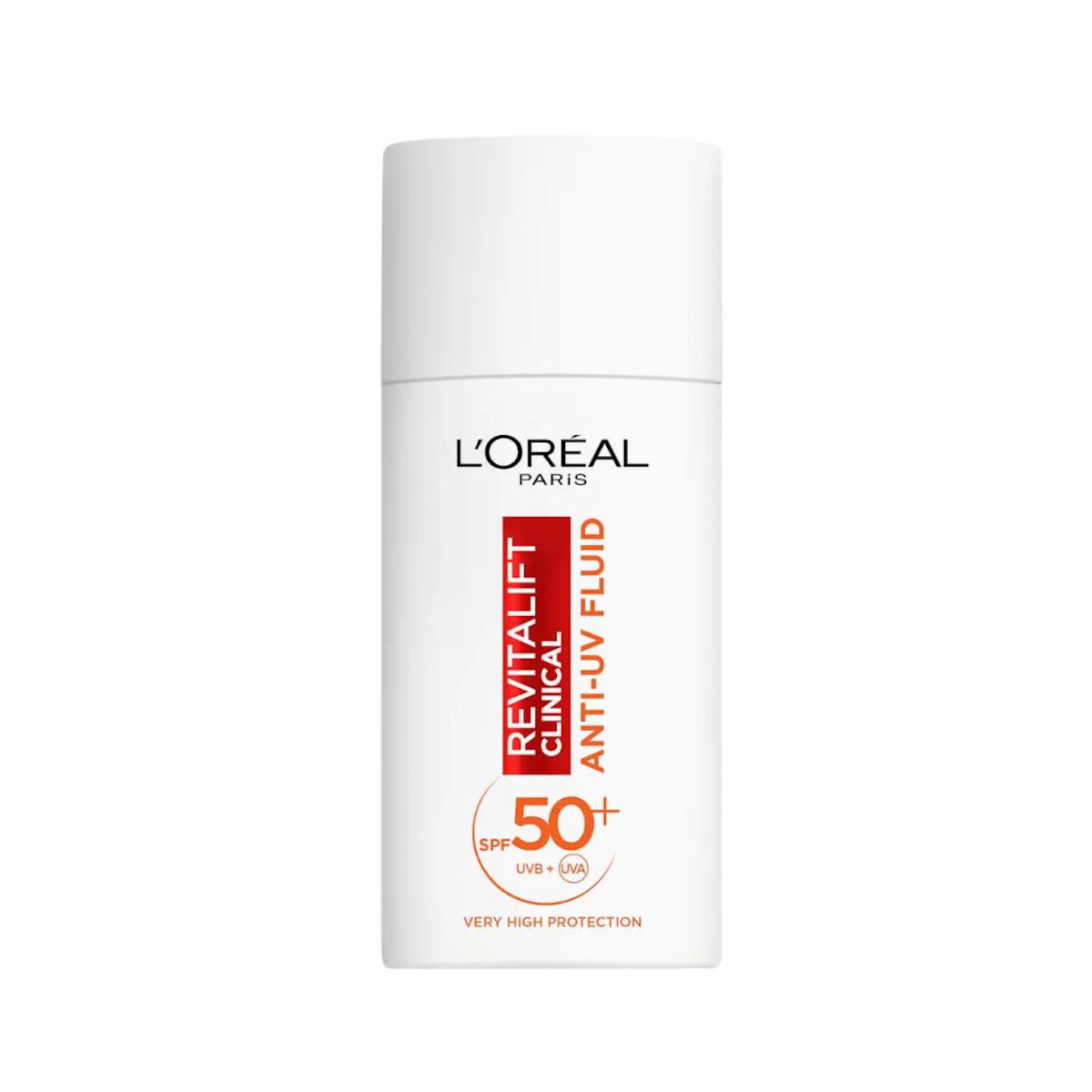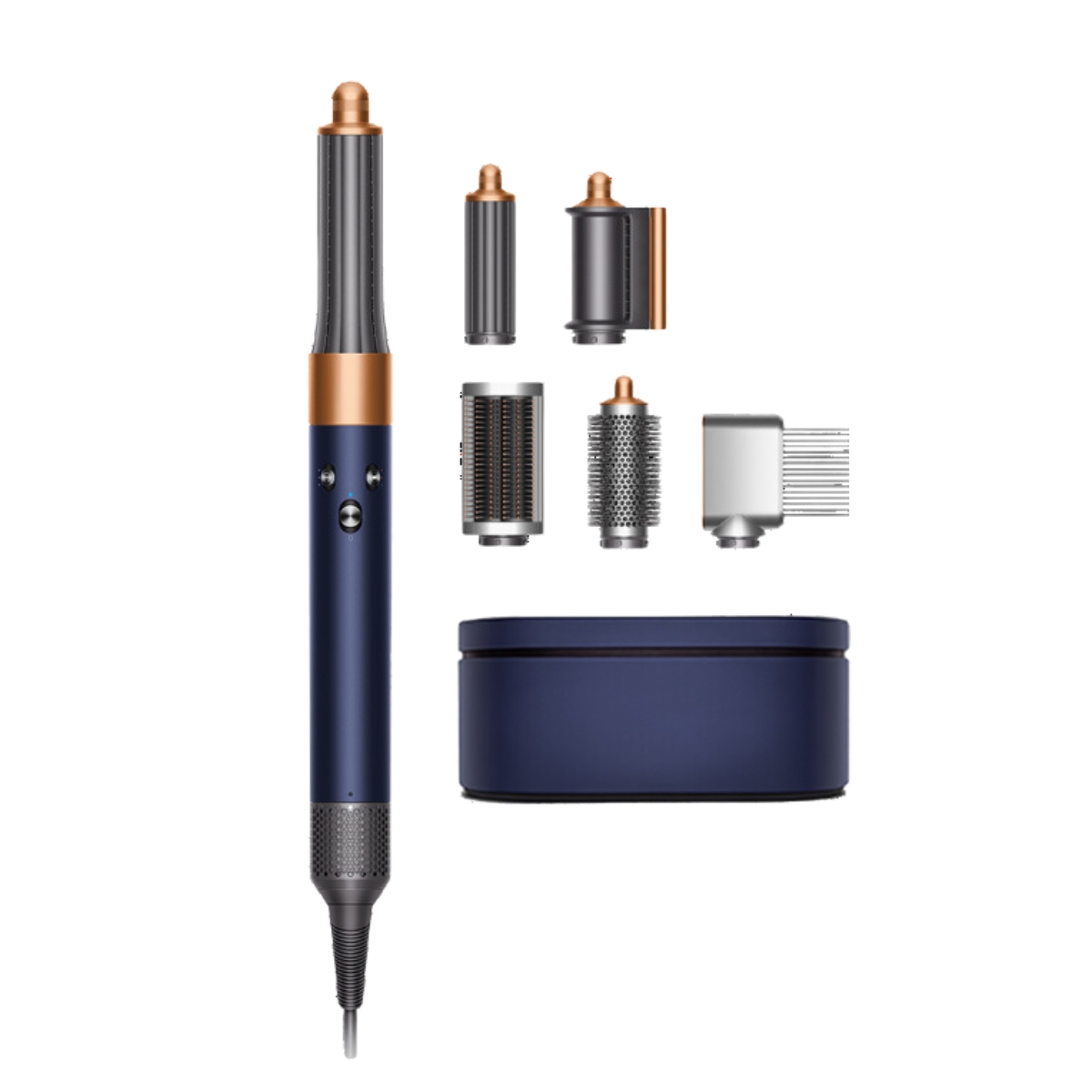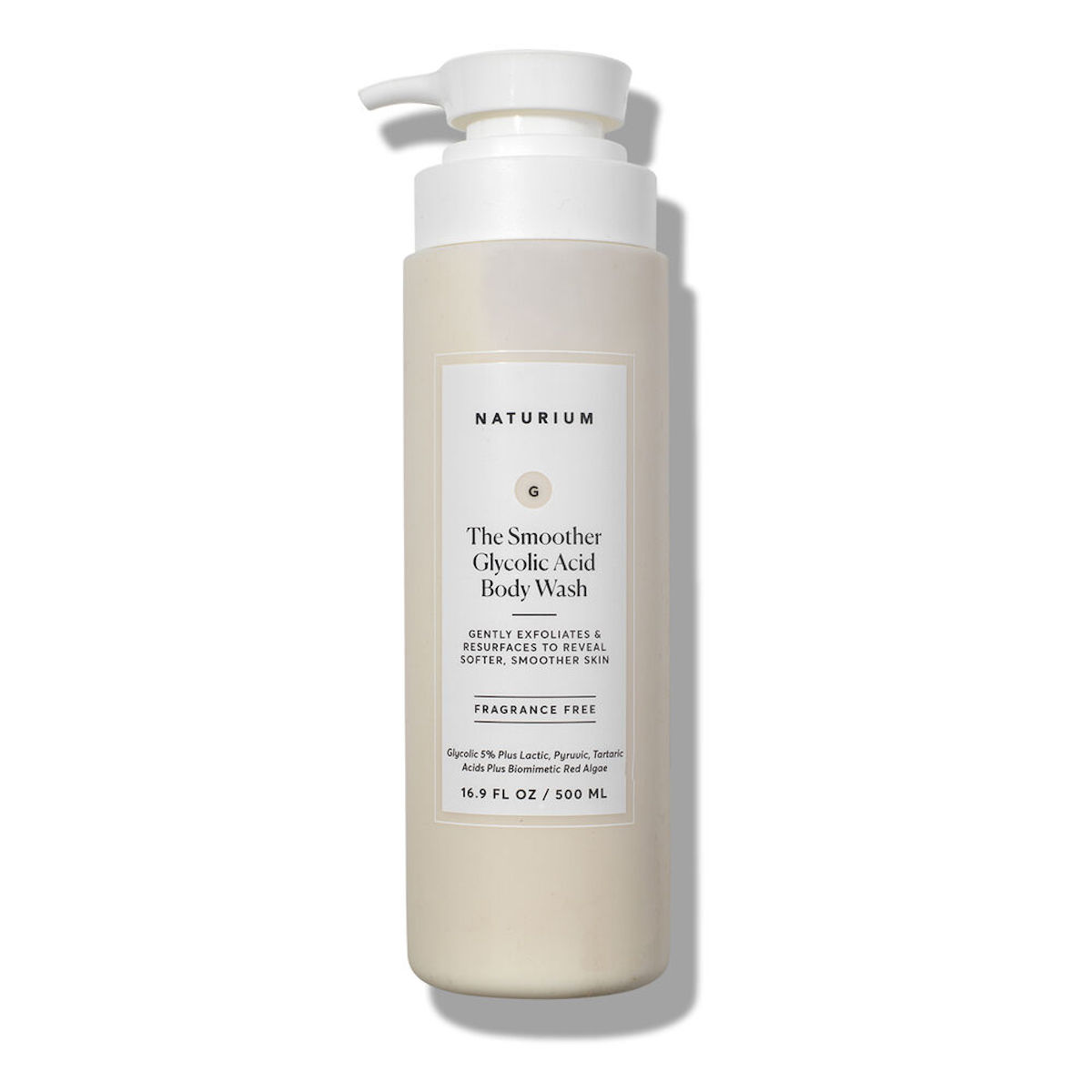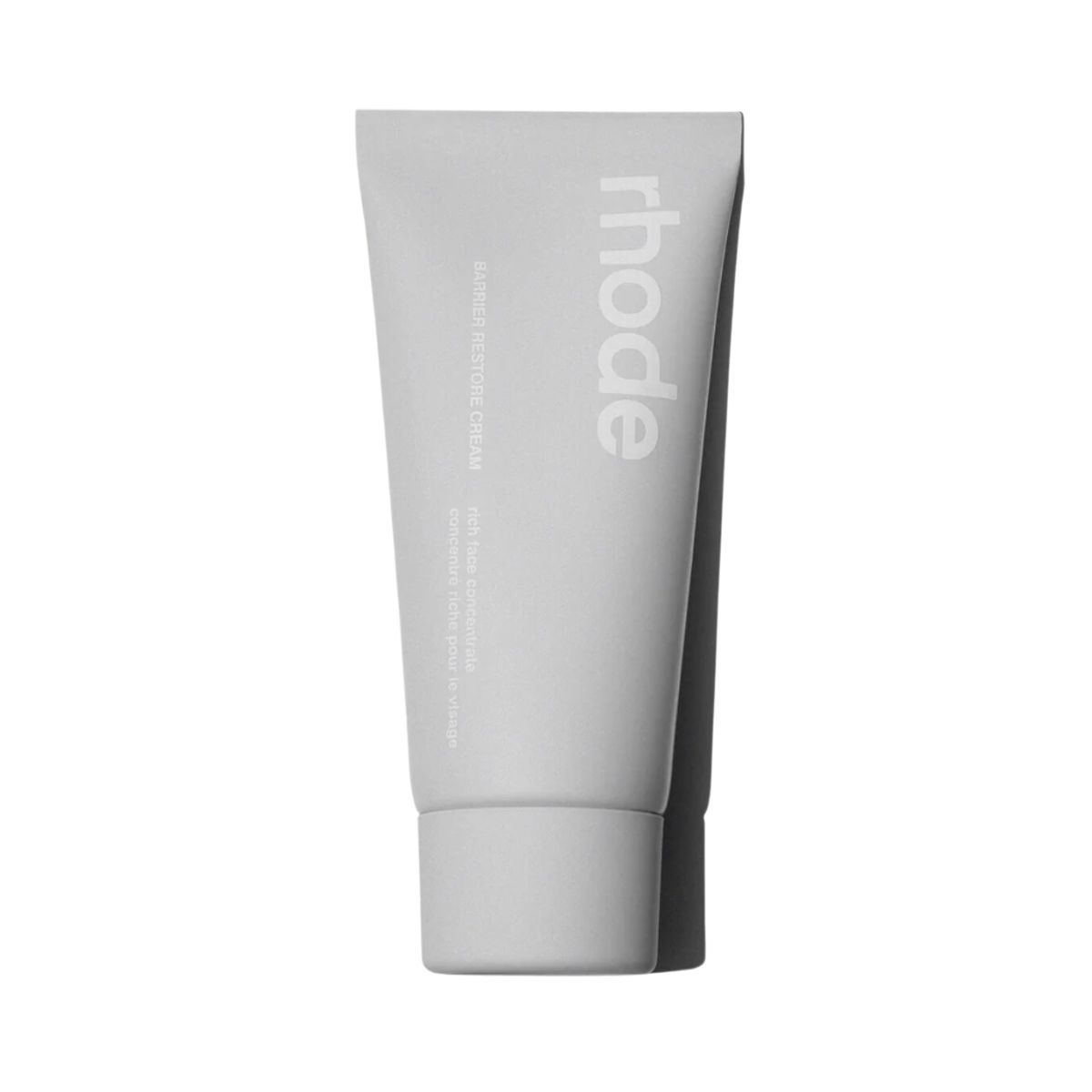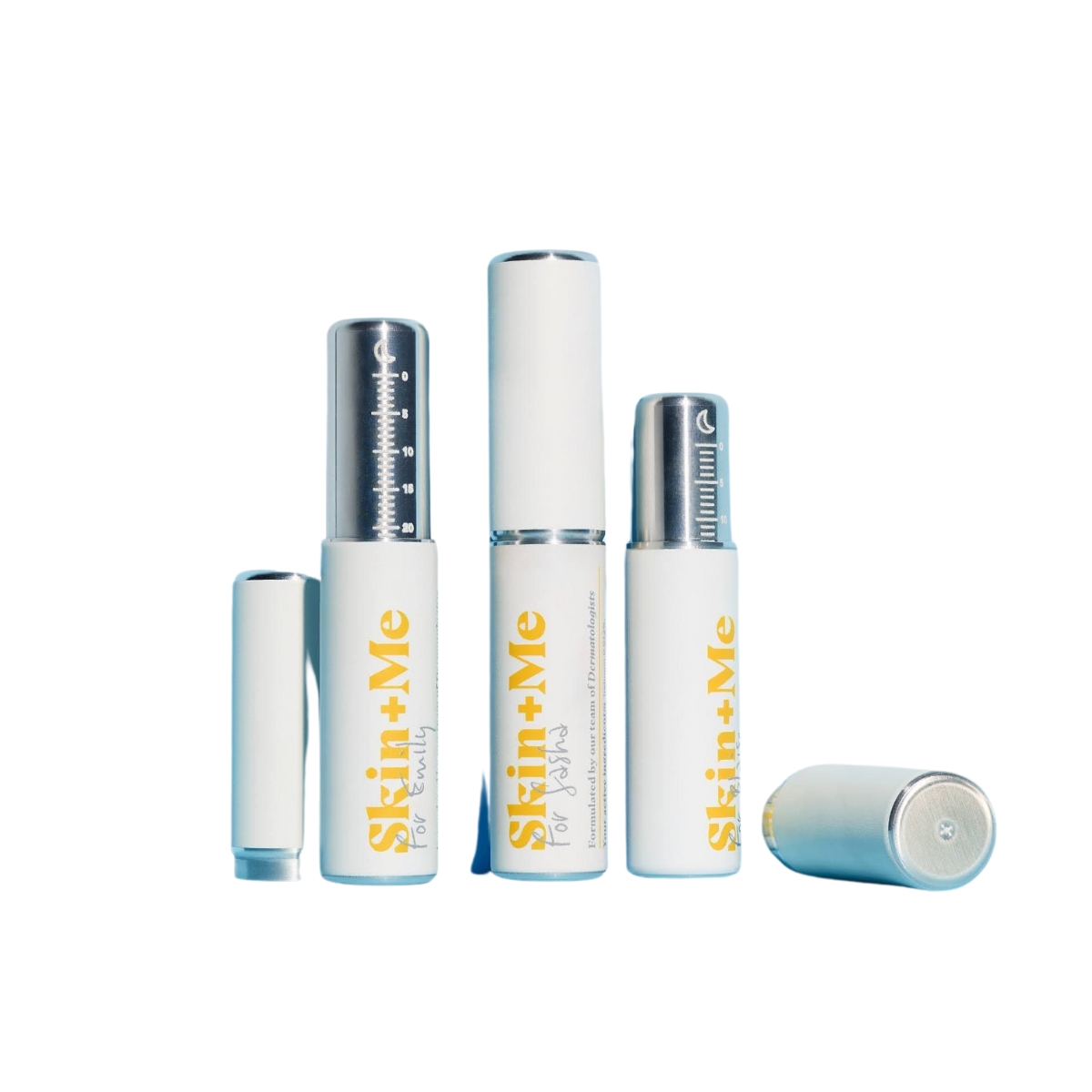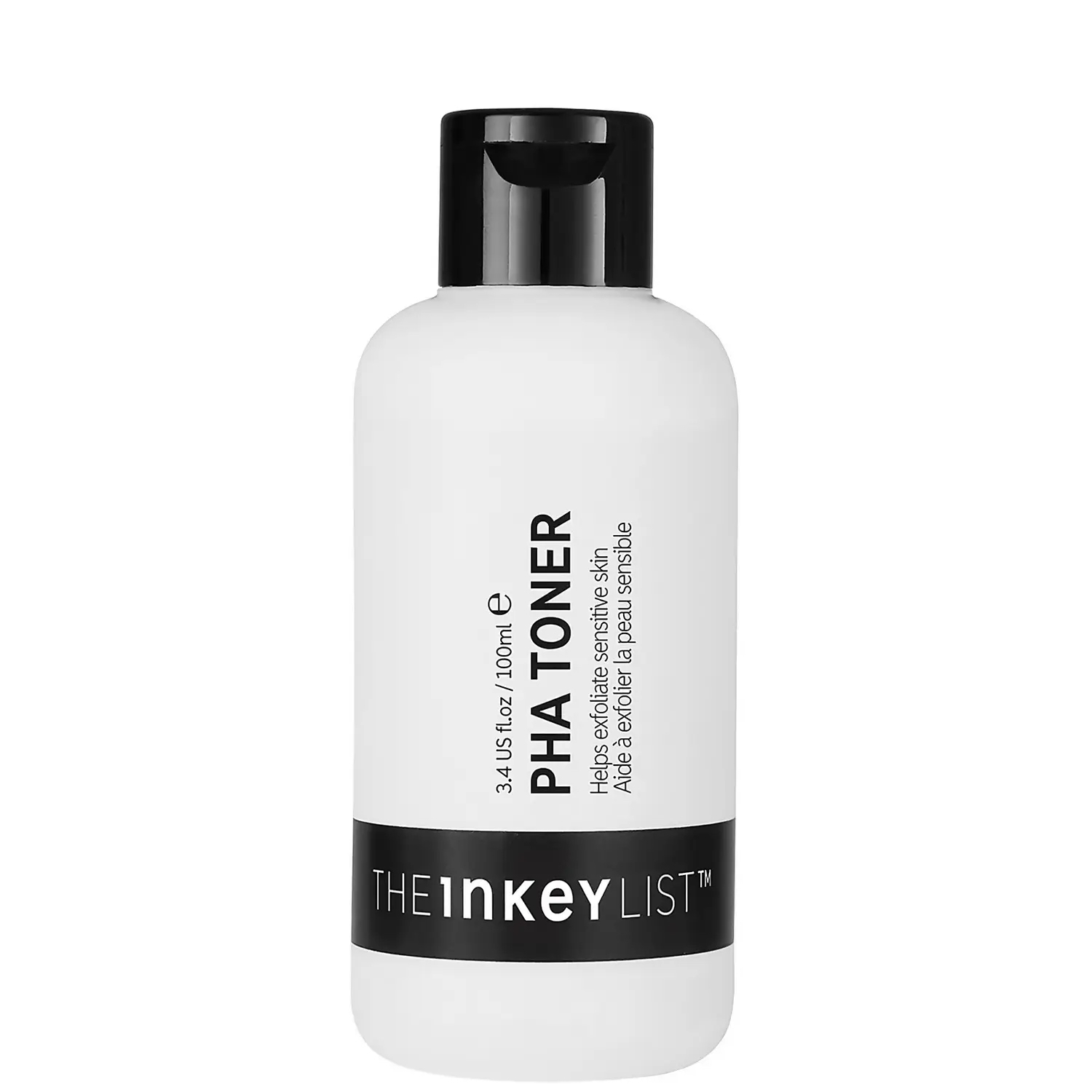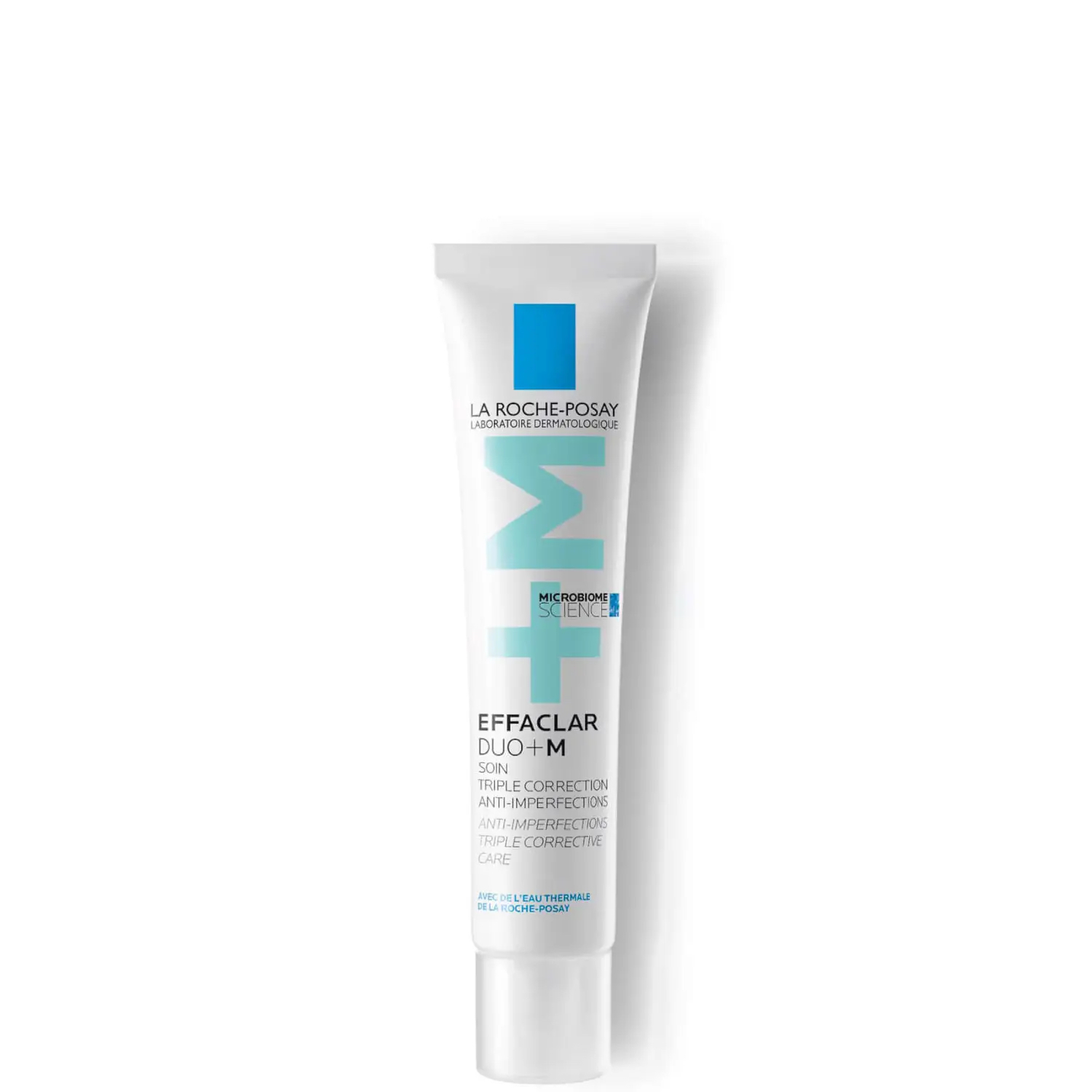8 beauty editors share the worst piece of beauty advice they've ever received
Some rules deserve to be broken
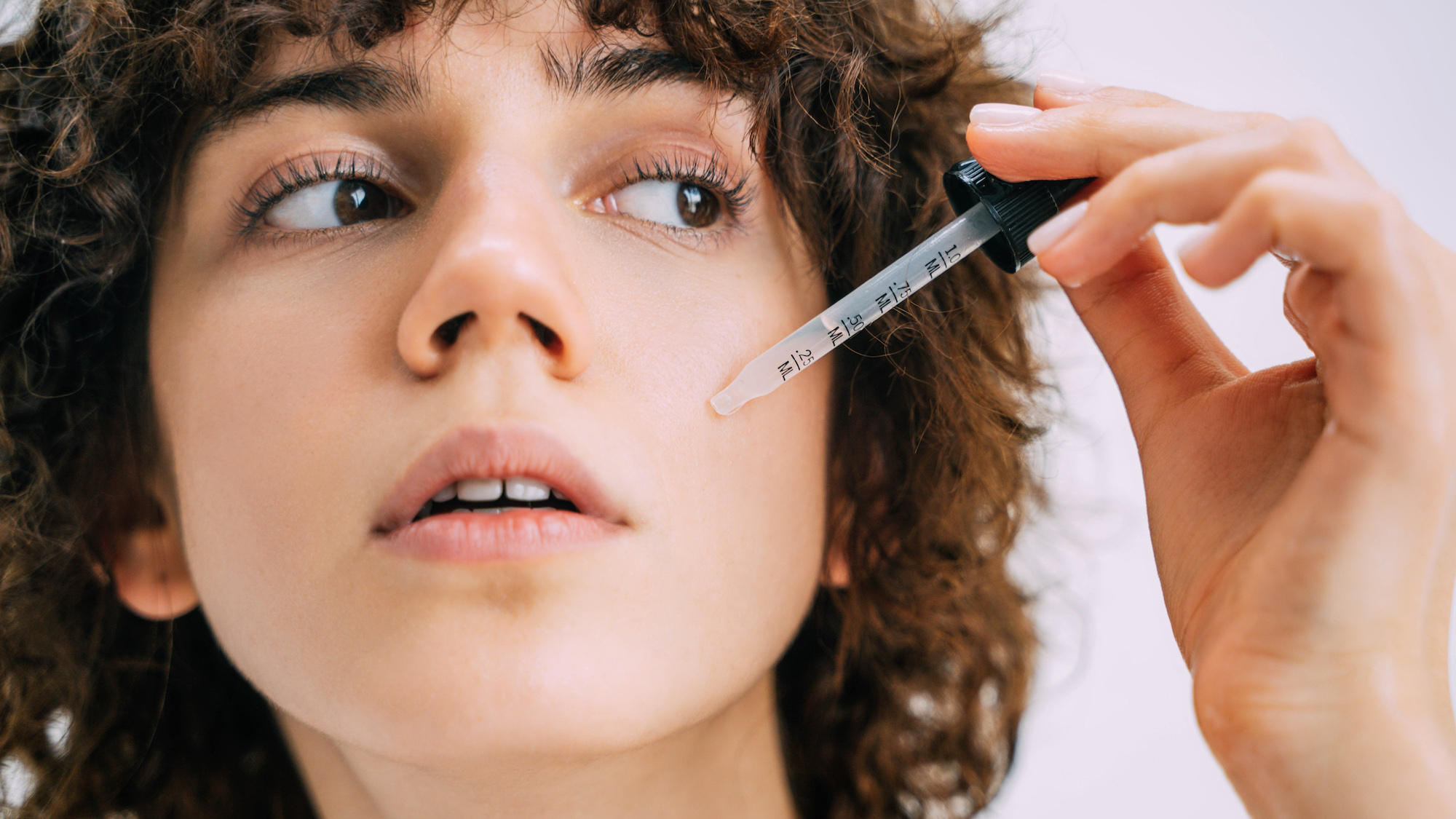

One of the best things about being a beauty editor is having access to the very best experts in their respective fields. Experiencing an unexpected breakout? A quick email to one of the UK’s top dermatologists can have our questions answered in moments. Want to know whether the latest trending hair tool is genuinely worth the hype? The industry’s top stylists will give it to us straight. However, despite the access to all of this brilliant expertise, there is no shortage of people who want to give us (often unsolicited) beauty advice. And if you’ve ever googled a beauty query yourself then you’ll undoubtedly feel the same—the internet is awash with conflicting opinions and questionable advice when it comes to beauty, with thousands of self-proclaimed experts on platforms like TikTok.
But what actually constitutes bad beauty advice? Ahead, I turned to some of the UK’s top beauty editors and asked them to dish the dirt on the worst beauty advice that they’ve ever received—and what they do instead.
1. "You shouldn't wash your face in the morning."

"I have a real issue with people sharing acne advice on social media—every treatment is so personal. Sadly, I can't tell you how many DMs I've received that imply my hormonal acne is down to cleansing my face in the morning. There is a theory that cleaning your face with a wash-off cleanser in the morning can cause dryness and compromise your skin barrier. And while some people (particularly those with drier skin types) might see some benefit in this, I am yet to meet a skin expert who works hands-on with skin every day who would advise anyone skip a morning cleanse—especially if you have acne.
"I have sought a lot of expert opinion on my acne, and not once has one of those experts suggested I should skip my morning cleanse. In fact, their advice has been that a morning cleanse is absolutely imperative. Our pillowcases harbour bacteria, and I don't know anyone who changes their pillowcase every day. The problem with not properly cleansing your face in the morning if you have acne is that bacteria can stew in your pores (which are typically already overproducing oil), and can cause further inflammation.
"If you find that your skin is dry or you have a suspicion that your barrier is compromised, adjust the type of cleanser you're using in the morning. Opt for a gentle cream cleanser instead of a deep-cleansing gel—that way you're keeping moisture in and ridding your skin of bacteria. My best piece of advice though? Unless you're a qualified skin expert, stop giving people acne advice on the internet." - Shannon Lawlor, Executive Beauty Editor
2. “You can lower your SPF once your skin is used to it.”

"I’d say that, back in the day, sunscreen-related advice was generally… bad. One tidbit that sticks out in my mind is that you could start a sunny holiday wearing SPF 50 and then reduce to a lower factor during the week. I think the (incorrect) logic at play was that your skin 'gets used' to the sun. I also probably didn’t apply or reapply sun cream nearly as much or as often as I should. Dermatologists everywhere would have cringed.
"Now, I religiously wear SPF every single day, all year round and one that I’m loving at the moment is L’Oreal Paris’ Revitalift Clinical SPF 50+. It doesn’t leave skin greasy after liberal application, nor does the vitamin C irritate my skin because it’s a derivative, and it makes a brilliant base for make-up.” - Lucy Abbersteen, Freelance Beauty Editor
Marie Claire Newsletter
Celebrity news, beauty, fashion advice, and fascinating features, delivered straight to your inbox!
3. "Skipping heat tools guarantees healthy hair."

“A couple of years ago, the no-heat discourse was a significant part of the natural hair movement. If you wanted healthy, longer and stronger hair, no heat was put forward as the solution to all your hair woes. For years, I hadn’t used heat, and I thought my hair would as a result be in the best condition ever. But that wasn’t the case—there was breakage, sometimes my hair felt weak and I even still had split ends. I didn’t understand what I was doing wrong when I had literally eliminated all heat from my hair routine. That was until I had a consultation with a natural hair expert and she said that while no heat was great for reducing heat damage, brushing wet hair opened up a plethora of hair issues. Your hair is in a weaker state when wet, so brushing and manipulating can mean more breakage, shedding or impacting the state of your hair.
"Since I have rediscovered heat, my hair feels stronger, I’m finding that my hair is breaking less, and I’m not waiting hours for my hair to dry. The most important thing I’ve learnt from this is to use products and tools that work with your hair and protect it from damage. I love the Dyson AirWrap—I use the wide-tooth comb attachment—and my hair dries within minutes without frying my hair to death. The combination of the Bread Beauty Supply Macadamia Oil and the Adwoa Beauty Blue Tansy Treatment Serum (a heat protectant) are great pre-styling to provide a shield from heat damage for my hair.” - Zeynab Mohamed, Freelance Beauty Journalist
4. “Black and brown skin can’t use glycolic acid.”
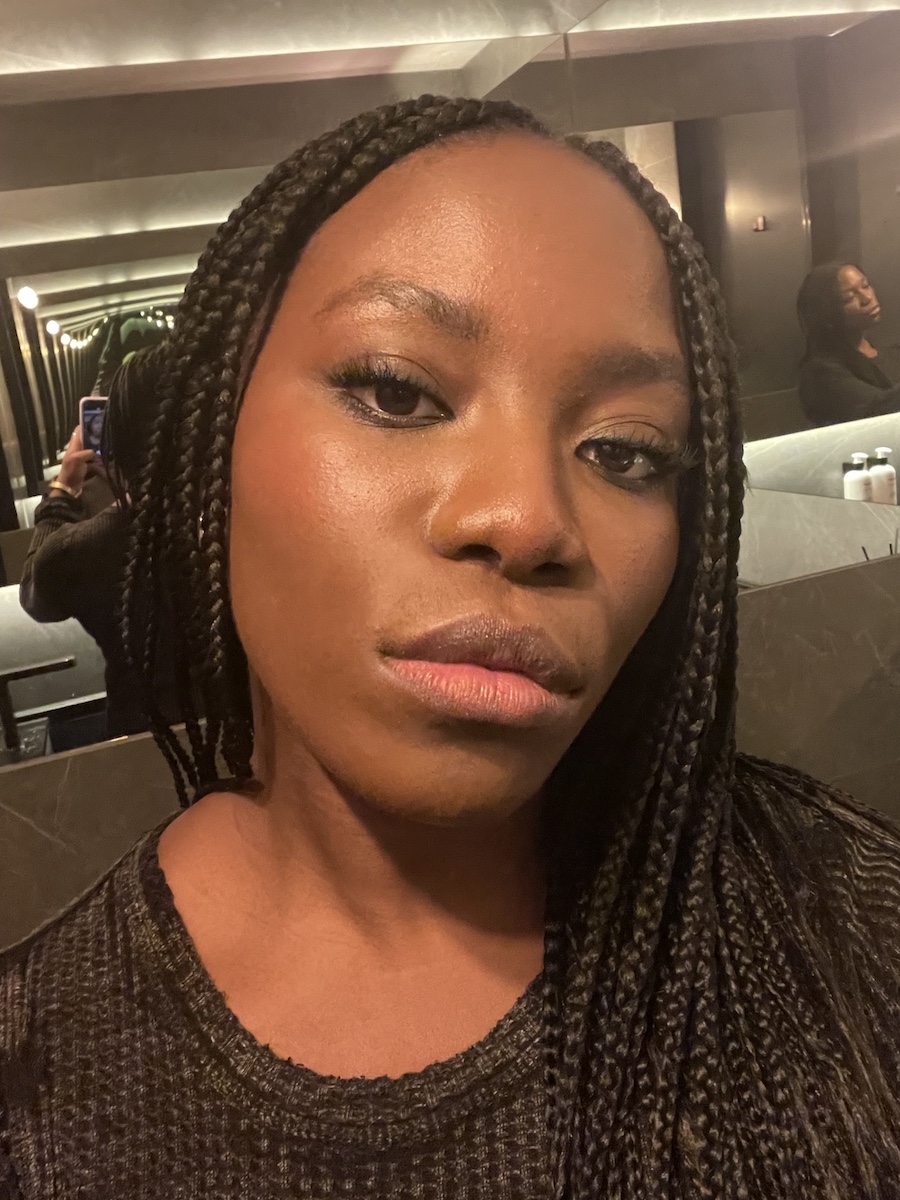
“As someone blessed with melanin skin, especially one that works in beauty, I am no stranger to bad beauty advice. In amongst the slew of advice warning you against all manner of actives and the both harmful and illogical myth that is ‘black and brown people don’t need SPF’, over the past few years there’s been a newer piece of advice that I now avidly dispel as soon as I encounter it—the idea that people with melanated skin should under no circumstances use glycolic acid. Now, be it ‘words of wisdom’ from a cautious friend or the latest influencer warning against the use of glycolic because of the belief that using it leads to hyperpigmentation, after consulting with derms and using it myself, challenging this bad advice has become my own personal beauty mission.
"Like all things, it’s best used with an understanding of your skincare needs and rhythms—low and slow is my best advice—it’s an active that really is the workhouse of exfoliators. If my advocations aren’t convincing enough for you to dip your toe into glycolic for the face, then try it on the body first. I love using Naturium’s The Smoother Glycolic Acid Exfoliating Body Wash—it’s packed filled with the stuff and cleanses, exfoliates and resurfaces the skin all over.” - Ata-Owaji Victor, Freelance Beauty Editor/Journalist
5. "Use Vaseline to restore your skin barrier."

“The most recent piece of bad advice I've received is something that I've been told while my skin is currently adjusting to tretinoin and is therefore fairly dry. The advice was to use Vaseline on top of the moisturising cream that I use after tret to help lock in moisture and restore my skin barrier. This is a bit mad in my opinion as I know for a fact that this would hugely break me out and, as a beauty editor, I would never recommend Vaseline for anything other than the obvious (that's lips, brows and small dry areas) rather than using it all over, which it's far too occlusive for.” - Rebecca Fearn, Freelance Beauty Editor & Features Writer
6. "Just wash your face to cure skin complaints."

“As beauty editors, we’re privy to the industry’s finest innovations. But that’s not to say that various skin conditions (cough, acne) don’t still have the power to grip us with their evil little claws. We aren’t immune. In fact, quite the opposite, all the testing-and-trying of products can send our skin into states of disrepair. Enter: my face—a confused canvas that’s ripe for the likes of eczema and acne. It’s all under control now (thanks to a bit of trial and error with my GP), but sometime last year I was at my wits end. “Has accutane worked for anyone?”, I asked on my story. I was met with tons of comments like, “Maybe just wash your face?”
Therein lies the worst advice I’ve ever received: “just wash your face”. While it’s true, you should cleanse, simply washing your face is not going to cure a skin condition. It’s an awful myth that acne is caused by being dirty. While it can be triggered by an overproduction of sebum, acne can be caused by a whole host of things like hormones and genetics to name a few. If you’re in doubt, try an online prescription service like Skin+Me or Dermatica, and don’t listen to any nasties online telling you to do what you’re probably already doing.” - Humeara Mohamed, Beauty Editor
7. “Everyone can use glycolic acid.”

“This advice was given to me in a facial room before the facialist proceeded to use a product containing glycolic acid (despite my near-begging for her not to) and subsequently my face coming out in a red hot, fiery rash. We both learnt a lesson that day: For me to advocate (louder) for myself and for her to listen to clients and their experiences with their own skin. Not every ingredient works for everyone and that is okay. My skin doesn't need glycolic acid to get the benefits of exfoliation and achieve a glow. Instead, if I need some exfoliation without the irritation, I reach for PHAs, which essentially give many of the same benefits without making my face a red, irritated mess.” - Tori Crowther, Freelance Health & Beauty Journalist
8. "Skip moisturiser to help oily skin."

"As someone who has had acne since I was a pre-teen, I have endured nearly a lifetime of unsolicited beauty advice. Some of the contradictory gems include being told to wash my face more, to try a face oil to (apparently) regulate oil production, to exfoliate every single day and, my personal favourite, to not stress about it as that will make my spots worse. However, potentially the worst piece of beauty advice that I ever received about my skin was from an actual GP who told me to stop using moisturiser entirely as that would help to reduce my breakouts. I must have been in my early 20s when I was given this advice and I remember throwing my moisturisers away when I got home—eagerly awaiting spot-free skin in just a few weeks. Forget hormones, it was my face cream all along!
"Turns out, this advice was wholly incorrect. And while caring for oily skin can be tricky business, it can still get dehydrated. In fact, denying oily skin moisture can then trigger it to produce even more excessive amounts of sebum in order to counteract the dryness. If you happen to be using targeted spot treatments, prescribed acne medication, or over-the-counter blemish remedies then chances are you'll be in need of even more moisture as many of these products can dry skin out further. Suffice to say, a few weeks in and not only was I still experiencing major breakouts, but my skin felt tight and shiny. After meeting with a dermatologist to discuss my skin's needs in a more specialist setting, the notion of skipping moisturiser to reduce oiliness was tossed aside and I was recommended to seek out lightweight, water-based, non-comedogenic formulas in future for my daily moisturising needs." - Mica Ricketts, Freelance Beauty Editor & Copywriter
Mica Ricketts is a freelance beauty editor and contributor to Marie Claire. She has written for titles including Refinery29 and Who What Wear UK, and also works with beauty brands on content messaging and marketing copy. She was previously Who What Wear UK's beauty editor. As someone that has tried basically every acne product on the market, she has a particular passion for debunking skincare myths and finding products that work. Plus, with two small children at home she is all about time-saving beauty routines that boost glow and disguise dark circles.
-
 Prince Harry's "proud" words about wife Meghan Markle are going viral
Prince Harry's "proud" words about wife Meghan Markle are going viralBy Jenny Proudfoot
-
 Sources have opened up about Timothée Chalamet and Kylie Jenner's "intense" start to the year
Sources have opened up about Timothée Chalamet and Kylie Jenner's "intense" start to the yearBy Jenny Proudfoot
-
 Two Hollywood actresses were offered the role of Carrie Bradshaw before Sarah Jessica Parker
Two Hollywood actresses were offered the role of Carrie Bradshaw before Sarah Jessica ParkerBy Jenny Proudfoot
